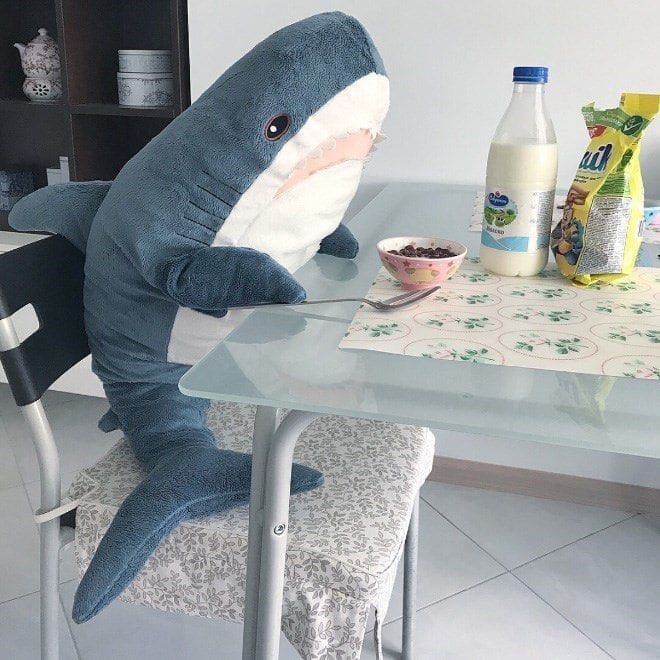If there is one Ikea product that has gained cult status, it is the Bláhaj plush shark toy. This three-foot-long shark toy has a blue top coat and a soft white belly, making it an adorable and huggable companion.
Bláhaj has taken the internet by storm, with people posting cute videos of Bláhaj parties on TikTok and memes featuring the cuddly shark circulating on Reddit. The popularity of Bláhaj even landed it a cameo appearance in the Marvel Studios’ Hawkeye series.
But have you ever wondered where Bláhaj is manufactured?
The answer might surprise you. Bláhaj is produced at a sprawling 25-acre textile factory in Ludhiana, operated by the Jawandsons group. This family-owned business, dating back to the 1970s, has become a trusted supplier for global brands like Ikea, H&M, Zara, Australia’s Kmart, and Japan’s Nitori.
Gian Singh, the 37-year-old Managing Director of the Jawandsons group, shared that their journey with Ikea started in 2001. Over the years, they have done more than €40 million worth of business with the Swedish retailer. However, the next generation of the textile family is now focused on creating their own domestic-focused nursery-care retail brand called MiArcus.
In 2020, Gian, along with his sister-in-law Gurnam Kaur and cousin’s wife Preeti Chugh, ventured into the baby care market and established MiArcus. Their ambition is to become a one-stop solution for all baby needs. Within just three years, MiArcus has grown to 38 stores across the country, with plans to reach 100 stores by 2025.
MiArcus sources many of its products, including knitwear, baby blankets, throws, and toys, from the Jawandsons factory. However, furniture items are outsourced from other suppliers and white-labeled under the MiArcus brand.
The Singh family’s textile journey began after the partition when they migrated to India. In 1970, Gian’s father and his two uncles started a small knitwear unit in Ludhiana, mainly supplying sweaters to Russia. When the Indian economy opened up in 1991, the business flourished, and in 2001, the Jawandsons group met Ikea at a textile exhibition in Germany. They became one of the biggest textile suppliers for Ikea, exporting their products to over 40 countries.
In 2014, the group decided to expand their partnerships beyond Ikea and started working with other customers like H&M, Zara, Nitori, and Kmart. To accommodate their non-Ikea customers, a separate factory was established.
Gian’s decision to enter the baby care market in India was prompted by friends who wondered why the European-standard baby products they were exporting were not available domestically. Seeing an opportunity, Gian, Gurnam, and Preeti launched MiArcus in 2019. Despite being impacted by the COVID-19 pandemic, they were able to secure affordable store leases due to the economic downturn. They have invested approximately 26 crore in the business over three years, with the majority going towards store rentals.
MiArcus has experienced steady sales growth, both online and offline, and currently achieves monthly sales of around 3.5 crore. With their extensive inventory of knitwear, they see a significant spike in sales during the winter months. Gian envisions reaching a turnover of 60 crore next year.
A visit to MiArcus’s store in Mohali reveals a beautifully designed pastel paradise. The store features a giant hoarding of brand ambassador Kareena Kapoor, a hands-on mom who perfectly embodies the brand’s vision. The founders of MiArcus have devoted substantial time and effort to marketing, starting with the carefully chosen brand name. MiArcus represents the colours of happiness that flood a home when a baby arrives.
Gian and his team are excited about the potential of the “Make In India” initiative. They often hear the phrase “China plus One” at overseas exhibitions, which encourages them to continue their manufacturing endeavours in India.

